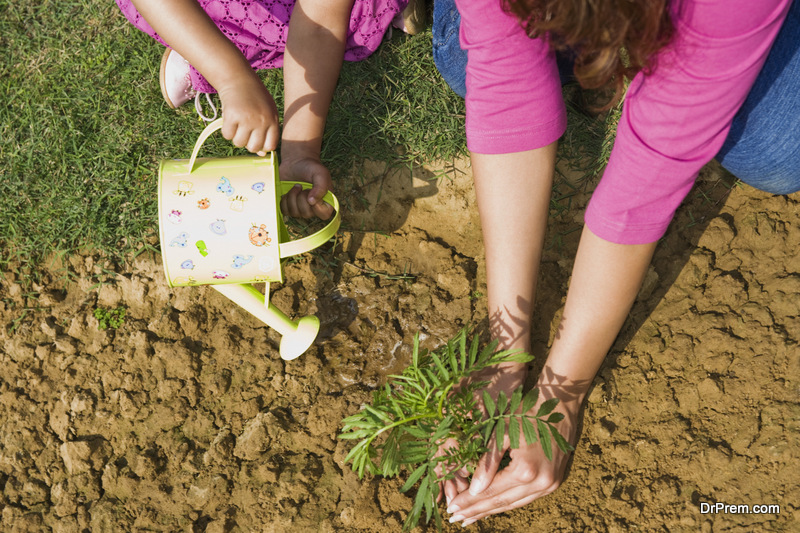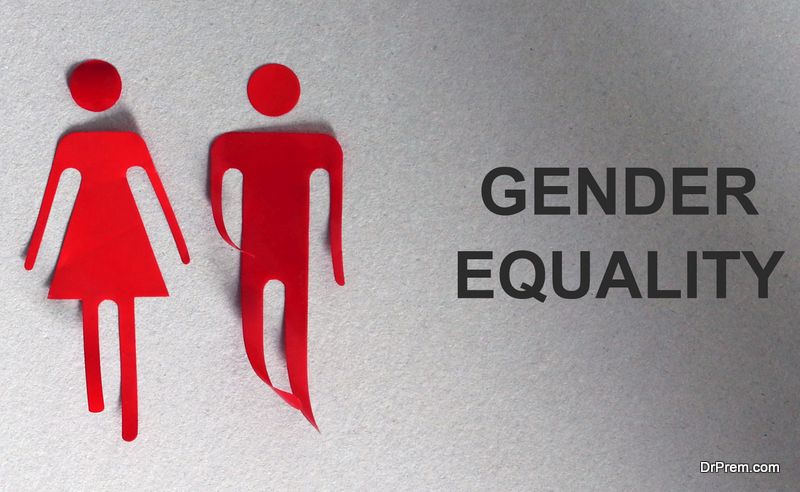What would be the future of the earth if more women took part in most of the major decision-making and actions in life? The UN’s 2030 agenda for Sustainable Development promises human rights for everyone everywhere. Gender equality is rightly considered crucial for sustainable development.
Gender inequality is not just a mere global concern but a serious obstacle to sustainable development. A lot of noise is being generated regarding why gender equality is important for sustainable development.
No society or community can grow while one major section of the population remains marginalized. Experts believe active participation from women is essential for sustainable development. Their vital contribution to maintaining sustainability has been grossly undervalued till date.
Ending discrimination for women and girls in all spheres of life not only restores their basic human rights but has multiple effects in all areas of development. As the world looks towards a greener future, women empowerment is gaining importance in public domains.
Startling facts of gender inequality in the modern age:
- Globally, women and children are subjected to abject poverty. 330 million women and girls live on earning less than $1.90 per day.
- In 2/3 rd of countries, more women than men are likely to report food insecurity.
- 15 million girls will never get a chance to read or write compared to 10 million boys worldwide.
- Climate change has severe impacts more on women and children. Women have 14 times higher chances of death from climatic disaster than men.
- A greater population of urban women in developing nations lack access to clean water, sanitation and stable dwelling space.
- 49 countries do not have well-framed regulations to protect women from domestic violence.
- 39 countries do not permit equal rights to inheritance for both sons and daughters.
A data-survey from 87 countries reveals:
- 1 out of 5 women and girls below 50 years of age must have gone through physical and sexual violence by the intimate partner in the past one year.
- 15 million girls below 18 years of age are deprived of their childhood owing to harmful practices like childhood marriage.
- Women are subjected to unpaid care and domestic jobs 2.6 times more than men.
- Only 52% of married women or in a relationship are able to make their own decisions regarding sexual relations, birth control and health care.
Targets set to achieve gender equality by 2030:
 The UN has set the following targets emphasizing gender equality is important for sustainable development:
The UN has set the following targets emphasizing gender equality is important for sustainable development:
- Putting an end to all forms of discrimination against women and girls everywhere.
- Eradicate all forms of abuse and violence against them in private and public space in all spheres of life.
- Eliminate evil social practices like child marriage and genital mutilation.
- Proper recognition and valuing unpaid care and domestic work by providing social infrastructure and protection policies and promoting shared responsibility.
- Ensure full participation and equal opportunities for women in decision-making and leadership opportunities at every level of social, political and economic life.
- Ensure universal access to reproductive rights, sexual and reproductive health.
- Take up reforms to ensure equal rights to economic resources and ownership, inheritance and control of other financial and non-financial assets.
- Promote women empowerment by enhancing access to information and communication technology.
- Adopting strong policies and enforceable legislation promoting universal gender equality and women empowerment.
Why gender equality is important for sustainable development?
The definition of sustainable development itself answers the question. It says, “Development which meets the needs of the present without compromising the ability of future generations to meet their own needs”.
The UN has set 17 Sustainable Development Goals to be achieved by 2030 where gender Equality stands as the 5th goal. Unless gender equality is established across the globe in all sectors, the remaining 16 Sustainable Development Goals will seem unattainable.
If we start from the 1st two goals that mention No poverty and zero hunger, it automatically boils down to gender equality. Who does not know severe gender-based discrimination pushes downtrodden women to poverty? It is the women (especially those from lower economic bracket) who choose to starve days after days to feed other family members.
It is the same gender discrimination that makes women suffer from malnutrition, pregnancy complications resulting in higher infant mortality rates. Although the situation has improved since the past few decades, more need to be done to fulfill the SDGs on schedule.
To achieve gender equality by 2030, urgent actions are required to eliminate the root of discrimination that still restricts women’s right in all spheres of life whether it is private or public.
Identifying deeper connections between women and sustainability:
Women belong to one of the most vulnerable categories who are severely impacted by unsustainable practices and climate change. A recent research report on Gender, Climate Change and Health from the WHO states that environmental disasters and natural calamities take a greater toll on women especially those from weaker sections of the society.
Women, in many countries, are the providers of food and water for the sustenance of their families. When there is a disruption of these natural resources, it is women who are forced to more hardships including more travel, more work and less return.
In view of this, women empowerment has become important as they have firsthand knowledge regarding the challenges in accessing natural resources. Their continuous struggle has compelled them to devise sustainable strategies with judicious resource management which if implemented on a wider scale will facilitate sustainability. Gender equality for sustainable development, therefore, requires women to be at the forefront and be the agents of changes.
Women are synonymous with care:
 Women are endowed with a special trait, care which this forms the cornerstone of sustainability. This caring power of women contributes a lot to social causes. They are more concerned about the welfare of the present without losing the vision of the future.
Women are endowed with a special trait, care which this forms the cornerstone of sustainability. This caring power of women contributes a lot to social causes. They are more concerned about the welfare of the present without losing the vision of the future.
Their caring attitude to maintain a secured and healthy environment in family and surroundings again brings forth a strong reason to promote gender equality for sustainable development. Because when care meets the purpose, it can drive a lot of things.
Valuing the invisible contribution:
Imagine the load of unpaid work a woman has to do all throughout her life. Women are often compared with nature. The contribution from both is not accounted for. Therefore, the unpaid work of women and nature’s services are not valued properly.
It remains invisible in the mainstream socio-economic system. The link between women and sustainability can be established from this as well. This undervaluation of natural resources has endangered our sustenance.
Newer research projects the need to establish gender equality for sustainable development. This not only makes interventions in environment management effective but also goes to the roots of these issues helping in finding out solutions that would transform the world into a better dwelling place.
Despite the remarkable progress in implementing gender equality since the last two decades, only a small part of a long journey could be covered. Sexual exploitation, physical violence and discrimination in public office still pose big obstacles. If these are not eradicated from grass root level, the 2030 targets would remain unachievable.







